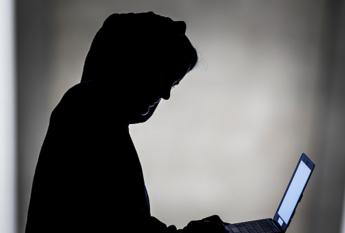We live in a world where vigilante hacker groups are idolized and commended for their illegal activity. In an era of extreme distrust of the government and law enforcement officials, it is only natural that we prize illicit organizations that promise to deliver the truth which has so long been hidden from society by those in charge. Anonymous is one such group whose level of public support continues to climb parallel to its growing disapproval by government organizations. Affectionately labeled “hacktivists,” Anonymous strives to uncover confidential information believed to belong in the public’s general knowledge. Additionally, the group has initiated protests for various causes and used their tech-savviness to monitor, hack and gain information on terrorist organizations.
I admit I was one of the people who initially supported Anonymous. There was something powerful about the idea that a mysterious group of men and women were working day and night to uncover the most intimate and scandalous secrets for the citizens of this country. Their cause was noble, praiseworthy and there was no doubt in my mind that their information was legitimate. However, Anonymous seems to have taken a sharp downturn in recent years. With the recent attacks in Paris, Anonymous has turned to target ISIS, which is allegedly responsible for the massacre that caused the violent deaths of more than 128 innocent civilians. Anonymous announced its goal to find and disable the social media sites that ISIS primarily uses to communicate and gain new followers.
Anonymous taking down ISIS accounts is actually a hindrance to the fight against ISIS because certain governmental agencies rely on those Facebook accounts for information on the terrorists’ location and strategies. One such intelligence group silently watching ISIS activity, GhostSec, commented that Anonymous’ loud and highly publicized announcements of ISIS takedowns and the subsequent destruction of their public communication channels do more harm than good in a larger sphere of global stability and safety. For every Twitter account disabled and email intercepted, ISIS officials and informants will find a more secure, private route unbeknownst to any intelligence agency, even the likes of Anonymous.
Given that ISIS conducts so many of their communications through the Internet, Anonymous poses a risk to the group, but it would be a gross assumption to believe Anonymous will make any real, tangible difference in ISIS’ stability or turn the tide of their war against the West. Any work Anonymous does in the process of reaching their unattainable goal is more for spectacle than any solid or effective purpose. Additionally, as a society we must consider the negative connotations with giving a vigilante group so much support and influence. Very little is known about the group itself, and if we grant Anonymous the role of sole arbiter of the world, there is no promise that one day the association won’t turn against another group of people who may actually be valued by society. Anonymous may have started out with good intentions, but the blind following behind them is extremely dangerous. Anonymous is not accountable to society, to one large overseer or to you and I, and I am willing to bet having a conscience is not part of its code of conduct.


